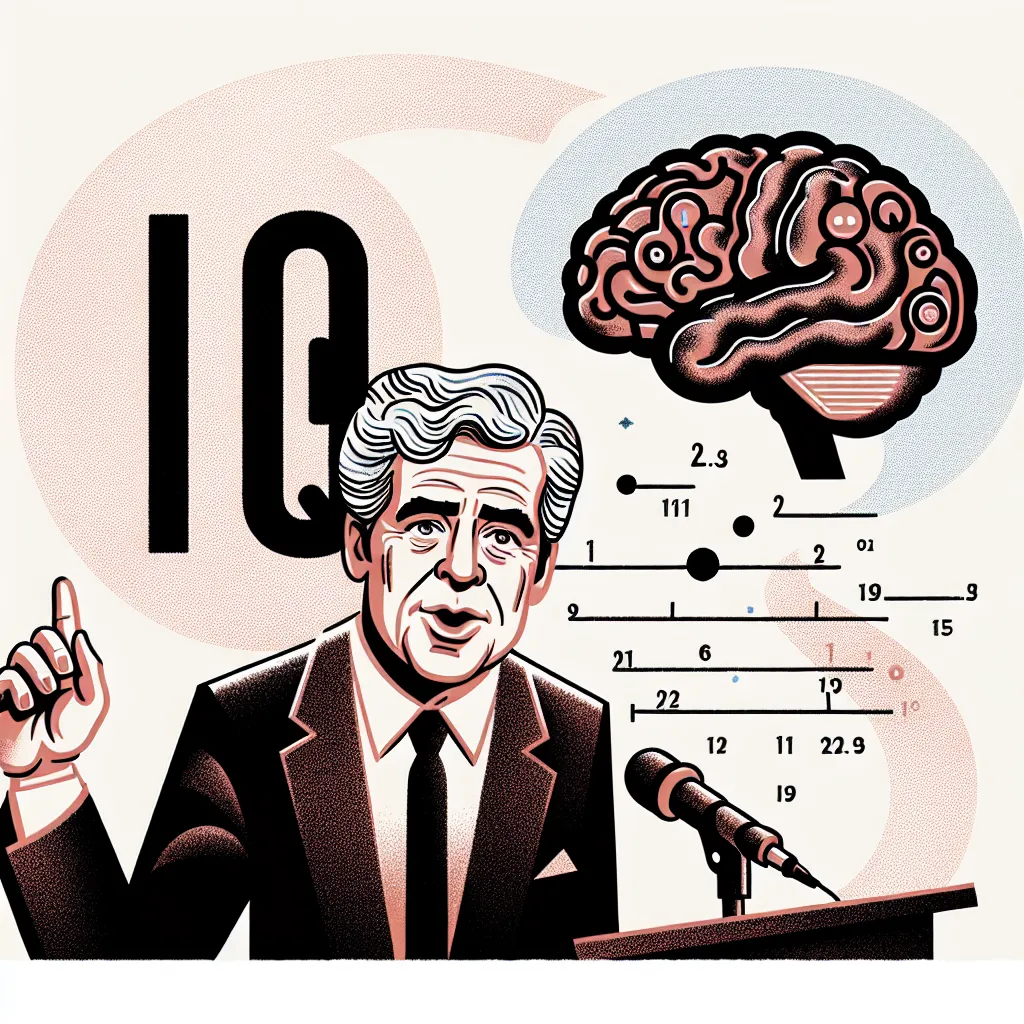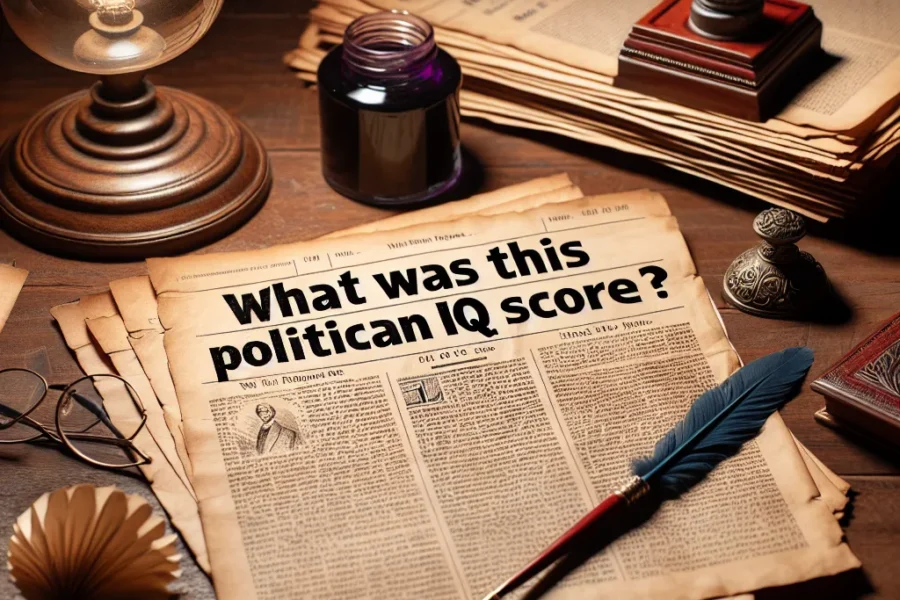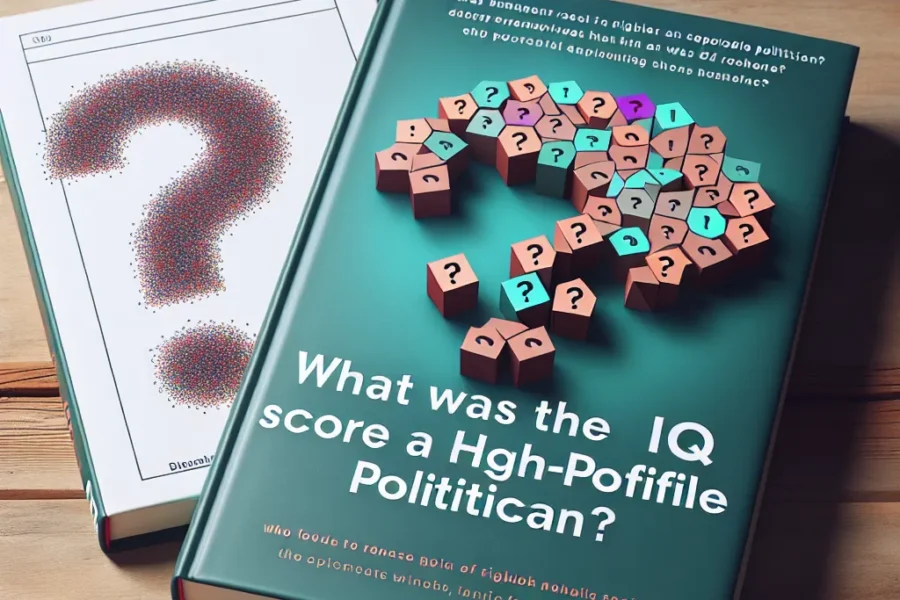As a figure who dominated the political landscape in the 1990s, Bill Clinton remains an enigmatic and fascinating figure for many. His remarkable intellectual acumen, charm, and policy decisions continue to be the subject of extensive debate and analysis. However, one of the more intriguing aspects often discussed is his IQ score.
If you are looking for legitimate IQ Tests which pass the entry bar for Mensa, see our [IQ Tests](https://cognitivemetrics.co).
Bill Clinton’s intelligence is widely acknowledged, but quantifying it through an IQ score provides an additional layer of insight. While the exact figure of Bill Clinton’s IQ score is not publicly documented through official test results, estimates place his IQ between 137 and 150, marking him as exceptionally intelligent. These estimations stem from various indirect measurements, including his academic achievements, SAT scores, Rhodes Scholar status, and anecdotal evidence from those who have interacted with him personally and professionally.
Bill Clinton’s educational background reveals a lot about his cognitive capabilities. Born in Hope, Arkansas, Clinton showed promise from a young age. His formal education began in Hot Springs High School, where he was an active student involved in various extracurricular activities, including the student government and musical performances. As a student, he demonstrated a considerable degree of intellectual curiosity and a penchant for leadership.
Clinton’s academic journey continued at Georgetown University, where he received a Bachelor of Science in Foreign Service. At Georgetown, he excelled academically while also being deeply involved in the political scene, serving as a student senator and interning for Senator J. William Fulbright. This period of his life underscored his aptitude in both academics and politics.
Perhaps one of the most notable markers of Bill Clinton’s intellectual capacity is his status as a Rhodes Scholar. The Rhodes Scholarship is one of the most prestigious international scholarship programs, supporting outstanding students for study at the University of Oxford. Clinton attended Oxford University, studying Philosophy, Politics, and Economics (PPE). The rigor and prestige associated with the Rhodes Scholarship indicate a high level of intellectual ability, given the stringent selection process involved.
Another often-cited piece of evidence regarding Clinton’s IQ is his SAT scores. While his exact scores have not been publicly disclosed, reports suggest that they were exceptionally high, adding further credence to estimates of his significant intellectual abilities. The SAT is a standardized test widely used for college admissions in the United States, with high scores often correlating with higher IQ levels.
Throughout his career, Clinton’s oratory skills, policy insights, and strategic thinking provided real-world proof of his intelligence. His presidency, marked by a period of economic prosperity and significant legislative achievements, showcased his capability to navigate complex political landscapes and forge bipartisan agreements. Whether it was his ability to communicate effectively with the public during crises or his skill in formulating policy, Clinton’s intellectual prowess was evident.
One cannot discuss Bill Clinton’s IQ without mentioning his prodigious memory. Anecdotes from his colleagues and friends indicate that Clinton possesses an extraordinary ability to recall detailed information, whether it be names, dates, or specific policy points. This eidetic memory has certainly bolstered his reputation as a highly intelligent individual.
However, it is essential to put IQ scores in context. An IQ score is but one measure of a person’s intellectual ability. While it can provide a snapshot of someone’s cognitive potential, it does not encompass the full breadth of intelligence or the key traits that contribute to a person’s success. Emotional intelligence, creativity, leadership qualities, and practical skills are all equally significant and are not measured by traditional IQ tests.
Moreover, intelligence is multi-faceted and encompasses various domains such as linguistic, logical-mathematical, spatial, bodily-kinesthetic, musical, interpersonal, and intrapersonal intelligence. Bill Clinton’s success can be attributed to a blend of these different forms of intelligence. His linguistic intelligence is evidenced by his eloquent speeches and persuasive communication; his logical-mathematical intelligence by his policy analysis and strategic thinking; and his interpersonal intelligence by his ability to connect with people and build political coalitions.
When discussing the relevance and implications of Bill Clinton’s IQ, it is also pertinent to consider his ability to inspire and lead. Leadership requires more than cognitive ability; it demands empathy, vision, decisiveness, and resilience. Clinton’s leadership during his presidency, particularly in times of crisis, demonstrated his capacity to handle pressure, motivate others, and make critical decisions.
Furthermore, his intellectual legacy includes his contributions to global diplomacy and international relations. Clinton played a crucial role in peace negotiations and international cooperation, leveraging his intellectual and diplomatic skills to foster global stability. His efforts in the Middle East peace process, the Good Friday Agreement in Northern Ireland, and humanitarian work through the Clinton Foundation serve as testaments to his strategic and empathetic intelligence on a global scale.
Despite his intellectual accolades, it is important to acknowledge the complexities and contradictions in Clinton’s personal and professional life. His impeachment and the controversies surrounding his presidency present a more nuanced picture of his character and decision-making. These complexities remind us that intelligence alone does not define a person; character, ethics, and judgment play crucial roles.
In conclusion, while Bill Clinton’s exact IQ score may remain a subject of speculation, the consensus points to a high level of intelligence. His academic achievements, Rhodes Scholarship, reported high SAT scores, and anecdotal accounts of his prodigious memory and strategic thinking collectively suggest that his IQ falls within the range of 137 to 150. However, it is crucial to remember that IQ is only one aspect of a person’s abilities and potential. Clinton’s success can be attributed to an array of intellectual, emotional, and practical skills that, together, facilitated his prominence in global affairs and politics. As we reflect on his legacy, it becomes apparent that intelligence in its many forms contributes to a person’s impact and achievements.



Leave a Comment